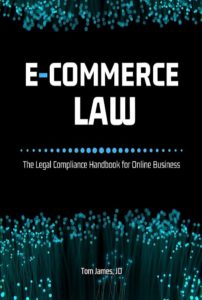©© 2022 Tom James 2022 Tom James
Hachette v. Internet Archive is an important  case to watch because it will ultimately determine the scope of authors’ and publishers’ exclusive digital rights in written works.
case to watch because it will ultimately determine the scope of authors’ and publishers’ exclusive digital rights in written works.
In 2020, several major publishers filed a copyright infringement lawsuit alleging that Internet Archive and others obtain copies of copyright-protected print books, scan them into a digital format, upload them to their servers, and then distribute the digital versions to members of the public via a website—all without the permission of the rights-holders and without any payment to authors and publishers. Over 1.3 million books allegedly have already been scanned and made freely available this way. The complaint describes the operation as “willful digital piracy on an industrial
scale.”
The first sale doctrine
The first sale doctrine generally allows the owner of a lawfully acquired copy of a work to sell, transfer or lend it without the copyright owner’s permission (17 U.S.C. 109). If you buy a print edition of a book, you may lend it to someone else or sell it at a garage sale without the copyright owner’s permission. The same holds true for libraries.
It only authorizes the distribution of lawfully acquired copies, however; it does not authorize copying and distributing unauthorized copies.
“Controlled digital lending”
Some scholars argue that if a library maintains a one-to-one ratio between the number of physical copies of a book it has and the number of digital “check-outs” of the digital version it allows at any given time, then digital lending is functionally equivalent to lending physical copies. This is known as controlled digital lending.
There are important differences between e-books and print books, though. It also may be questioned whether authors and publishers can effectively monitor third-party compliance with that restriction in the absence of a licensing agreement.
Fair use
What constitutes “fair use” depends on four factors: (1) the nature of the work; (2) the character and purpose of the use; (3) the amount and substantiality of the portion copied; and (4) the effect of the use on the market for the work.
Increased access to published works is a noble purpose. In my view, however, the massive amount of copying and the effect on the market should weigh against a finding of fair use here. E-books are a significant source of revenue for authors and publishers. In 2020 alone, over 190 million e-books were sold in the United States. It seems likely that author and publisher revenues from both digital and print sales will shrink dramatically if a court approves copying and distributing entire books with no payment to—or even permission from—the authors and publishers.
Ultimately, the court will need make the fair use determination. Either way, there will almost certainly be an appeal.
Stay tuned.
_________________________
Thomas James is a copyright/trademark attorney at the Law Office of Tom James in Minnesota and the author of the nationally syndicated blog, The Cokato Copyright Attorney. He is also the author of several books and law review articles, including E-Commerce Law: The Legal Compliance Guide for Online Businesses. He teaches courses on copyright and trademark law for both attorneys and non-attorneys. Hobbies: hiking, camping, photography.
at the Law Office of Tom James in Minnesota and the author of the nationally syndicated blog, The Cokato Copyright Attorney. He is also the author of several books and law review articles, including E-Commerce Law: The Legal Compliance Guide for Online Businesses. He teaches courses on copyright and trademark law for both attorneys and non-attorneys. Hobbies: hiking, camping, photography.

